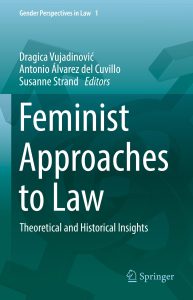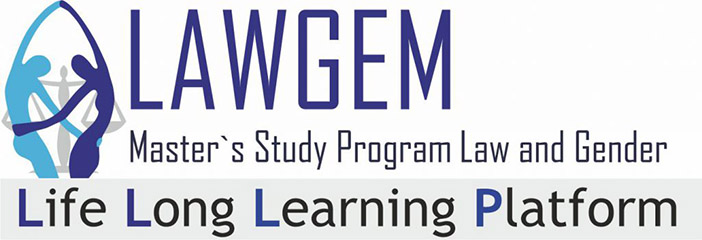The implementation of LAWGEM project has led to the publication of books of great importance not only for teaching staff, but also for legal practitioners, students, as well as anyone else interested in acquiring a better understanding of contemporary gender competent legal questions.
This also relates to the books published by Springer, in the frame of book series ‘Gender Perspectives in Law’, edited by Prof. Dr. Dragica Vujadinović and Prof. Dr. Ivana Krstić. The book series represents the added value to the LAWGEM project and which discusses all-encompassing gender-competent legal questions. Having a gender-competent approach is required when considering the highest values and normative standards of modern international, European, and national law. Raising awareness about gender equality issues means investing in the creation, interpretation, and implementation of legislation that is more fair, just, and equitable and will also contribute to a comprehensive understanding of social reality, as well as to gender-competent political, legal and economic decision-making and public policies.
The first book published within the series is the book edited by Dragica Vujadinović, Antonio Alvarez de Cuvillo and Susanne Strand Feminist Approaches to Law – Theoretical and Historical Insights (Springer Nature, Cham, 2022, XVI + 150 pages). It contains papers witnessing different impacts of feminist political and legal theories, as well as critical legal studies. The ongoing issue of defining gender, for example, is a recurring theme in the texts. There are papers that question the binary basis of the gender issue and the notion of gender as such. Others start from the binary dichotomy and attempt to expand the consideration toward a multi-dimensional understanding of gender identities. The main focus is feminist reconsideration of all relevant fields of legal knowledge. The primary aim is to demystify the seemingly neutral character of legal norms and legal knowledge and highlight the power relations at different layers, beginning with male and female legal subjects of Western heredity (in terms of culture, ethnicity, and race), then moving on to different needs and power relations among female persons of different races and classes, and finally moving on to differentiating gender relations and identities beyond the framework of the women–men binary dichotomous codification, i.e. also taking into consideration the multiple options of intersex, transgender, queering, etc.
The papers deal with very different topics related to feminist political theories, the feminist movement, critical race theory, critical legal history, queer theories, adultery, as well as issues related to constitutional democracy and theories of democracy in general. The converging aim and axis is gender equality-its clarification, articulation, promotion in legal theory and practice. Interesting and indicative enough is the fact that there are authors from many countries spanning across different continents. The global relevance of the gender equality perspective in legal education, legislation, and legal professions has been expressed and confirmed in the content and authorship of this book.
You can access the book by clicking this link:
https://link.springer.com/book/10.1007/978-3-031-14781-4


